When I was a teenager I wanted to study math and I knew I would never want to be a teacher, because in my family everybody was a professor and all our meal conversations were about students: not much fun!
What happened to that plan?
I grew up in Italy, and at the time of starting university, it became clear to me that, if I took math, I would end up being a high school teacher, because in those times girls were not expected to take jobs in business and industry or scientific research, while humanistic subjects offered more opportunities. I studied classics and history and I became passionate about the latter, so I asked my thesis supervisor whether she thought I should continue with historical studies to become a professional researcher. She responded that I was “far too brilliant to be an historian” and I should rather become an archivist. I knew little about archives, which I mostly experienced as a user in the process of writing my thesis, but I was fascinated by the Tabularium, the archives of ancient Rome, and its function in the context of the Roman democratic republic, so I followed my professor’s advice.
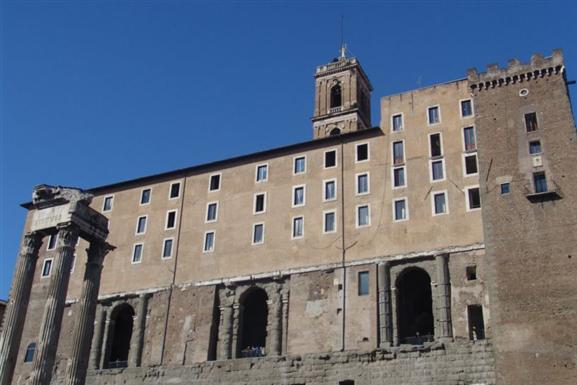
Thus, I studied archival science and competed for the position of state archivist. In 1978 I became state archivist of Rome and started working in one of the most beautiful architectural structures of the Baroque times, Borromini’s Sant’Ivo alla Sapienza. I learned to identify, read, analyse and describe the fourteen hundred years of records kept in the State Archives of Rome, all the while being told that the most experienced archivist in an archival institution would be totally incompetent in another, and wondering how could that be if our discipline was a science, as I had been taught in the course of my studies.
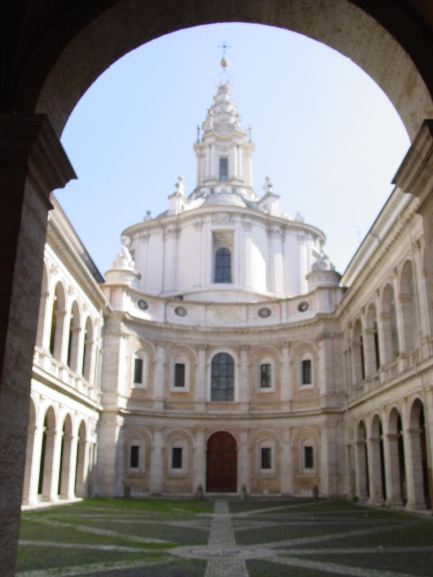
A few years passed and a position became available at the University of Rome to teach and conduct research in archival science. A colleague insisted that I should apply, and I did, mostly because I wanted to find out whether indeed there was a different archival science for each time, each place, each technology, or was it possible to identify universal descriptive and normative theory that could guide our methods when we would be presented with an unknown reality. I got the job at the university and started in earnest my research program, but soon afterwards my husband was sent to Toronto, Canada by his company for a couple of years and I accompanied him, taking a study leave with a program of research in North American archival practices (1984-86). During the time in Toronto I visited several archives, read all the North American archival literature I could put my hands on (not much at the time), participated in conferences, and was invited to speak to the students of the University of British Columbia (UBC) in Vancouver.
Shortly after our return to Italy I received a phone call from Vancouver informing me that a new position in archival science had been created in the Master of Archival Studies (MAS), and that a delegation of students had asked the Dean to invite me to apply. I think I only applied because I was so flattered by the invitation. But then I went to Vancouver to be interviewed, and I loved what I saw and learned. My husband was willing to try the adventure and join me without a job lined up for him, and the kids were young enough to adapt easily to a new environment. So, we just did it. How to resist?
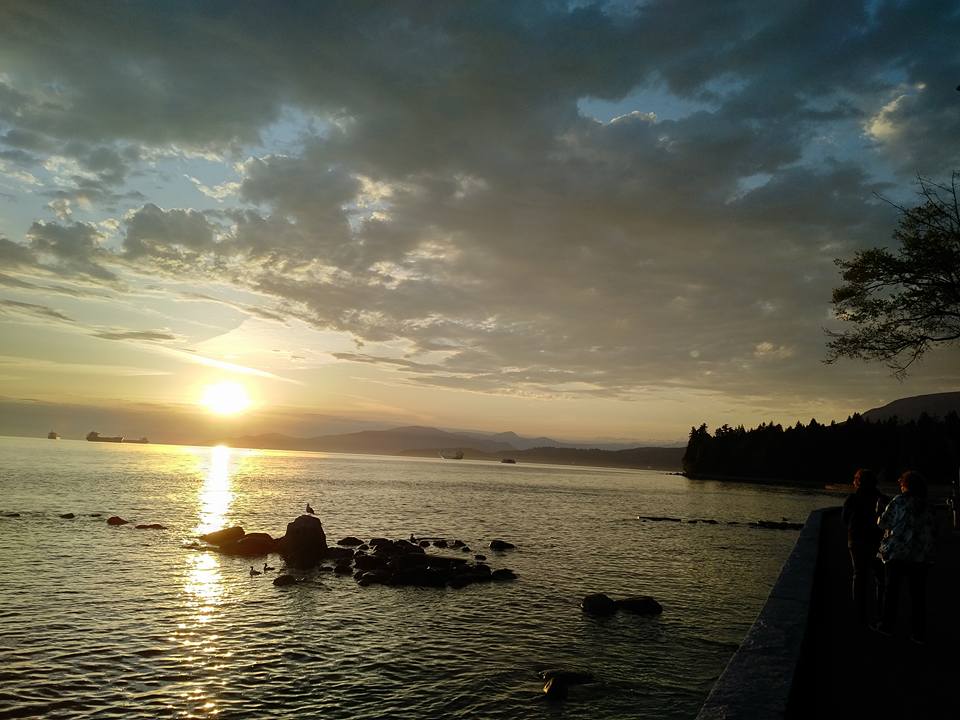
Terry Eastwood was the head of the MAS program at UBC. As I arrived in Vancouver in July 1987, he asked me what I wanted to teach in the next academic year. I proposed the usual subject matters: acquisition, arrangement and description, reference service and access, preservation, etc. He said that he wanted me to teach records management, appraisal and diplomatics. I responded that we did not teach records management in Italy as the current records archivists were just clerks and learned on the job, while the historical records archivists were those with the specialized education, but only about records identified for permanent preservation. So, I knew nothing about the matters he wanted me to teach. Moreover, diplomatics was about medieval records and there were no records pre-1600s in Canada. Terry gave me his knowing warm smile and said, “If archival science and diplomatics are sciences you can apply them to everything. You will figure it out.” I responded, “Fine. I asked for the music. I will dance.”
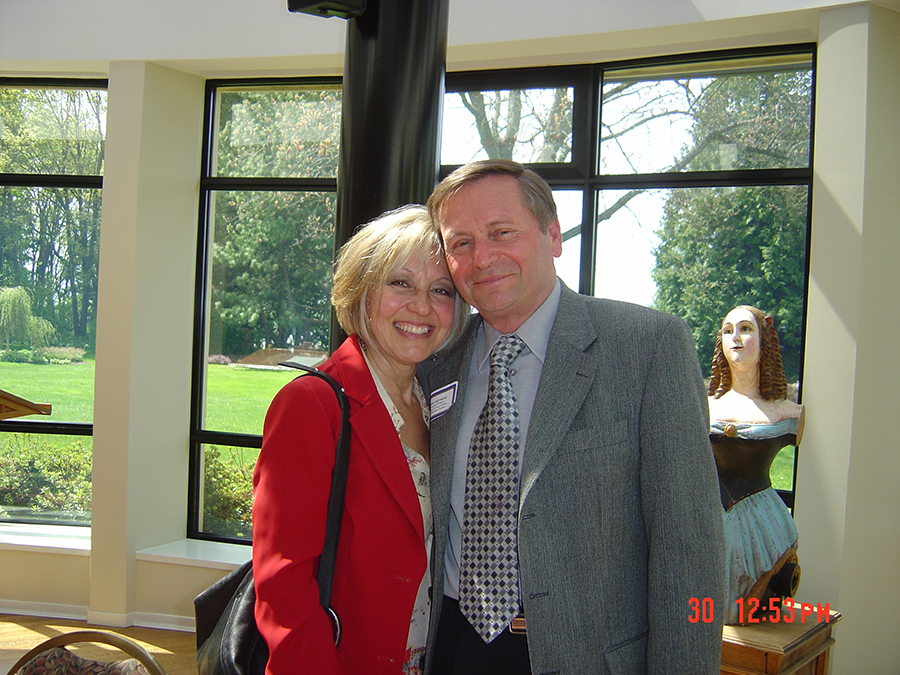
Terry Eastwood and me (2002)
So I danced. I adapted classic diplomatics to the needs of the contemporary world, finding out in the process that diplomatic concepts and principles are the theory of records management (much of my work about that can be downloaded from here); and I started to learn and think about appraisal. The years passed and I decided that the archival world was changing so fast that we at UBC had to try and stay ahead of the game if we wanted our graduates to be competent and effective in any job regarding records and archives. I started the MAS/DOD project in 1994 (http://www.interpares.org/UBCProject/index.htm) and, in 1998, I decided that we needed to go international with a research that would involve many cultures, contexts and working environments, but focused on born-digital records and the preservation of their authenticity. InterPARES (International research on Permanent Authentic Records in Electronic Systems) was launched then and it is now in its fourth phase (www.interpares.org and www.interparestrust.org).
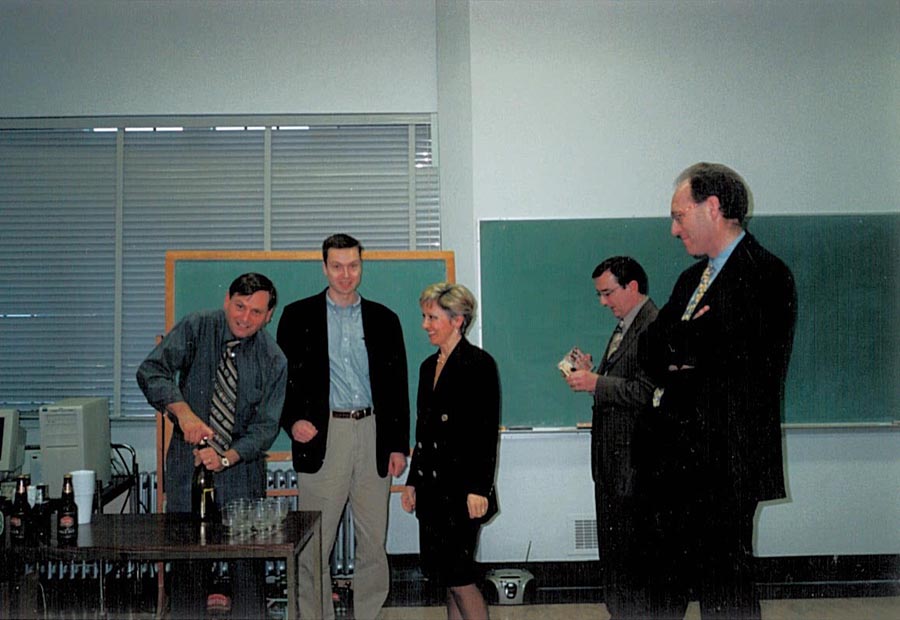
Who would have thought when I finished high school that I would be a professor of archival science in another continent? It was not in the plan, but I love the dance that I am still dancing.
Luciana Duranti
Professor, Archival Studies
The University of British Columbia
http://slais.ubc.ca/, www.ciscra.org , www.lucianaduranti.ca
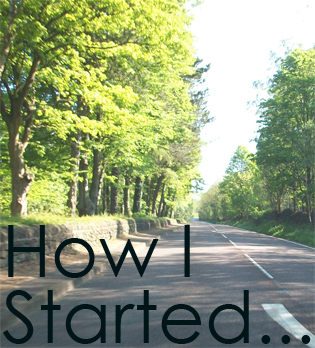

Leave a comment